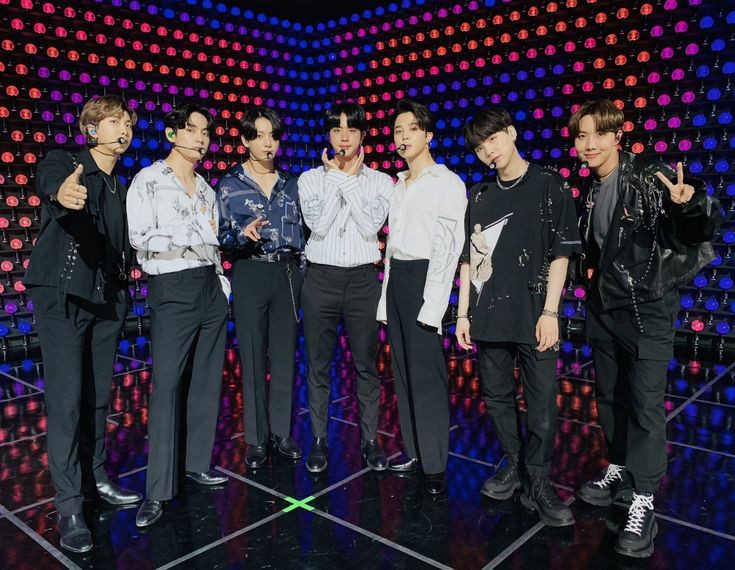K-pop, short for Korean pop music, is loved worldwide for its catchy songs, cool dance moves, and amazing music videos. Originating from South Korea, it has become super popular globally, bringing together fans from all over who are crazy about Korean entertainment. What makes K-pop special isn’t just the music—it’s the whole culture around it, especially the passionate fan communities.
In recent years, K-pop has exploded in popularity globally. Groups like BTS, BLACKPINK, and EXO have not only topped charts but also gained huge fan followings worldwide. This is thanks to social media and streaming platforms that make it easy for fans to discover and support their favorite artists. K-pop isn’t just about music anymore; it influences fashion, beauty trends, and even how people create content online.
K-pop fans are incredibly dedicated. They don’t just listen to the music—they organize fan projects, support charity initiatives, and connect with each other on platforms like Twitter and Instagram. These fan communities are like big families, where everyone shares their love for K-pop idols and supports each other’s creativity. Understanding K-pop fan culture shows how powerful fandoms can be in shaping trends and bringing people together.
Characteristics of K-pop Fan Communities
- Diverse Demographics: K-pop fandoms encompass fans of various ages, genders, and cultural backgrounds, creating a richly diverse community.
- High Engagement Levels: Fans actively participate in discussions, fan projects, and social media interactions centered around their favorite K-pop idols.
- Formation of Dedicated Fanbases: Each K-pop group typically has a dedicated fan base known for their loyalty and support, often organizing fan events and charity initiatives.
- Strong Emotional Attachment: Fans develop deep emotional connections with K-pop idols, often expressing admiration and affection through fan art, fan fiction, and personal tributes.
- Active Online Presence: K-pop fans dominate social media platforms with hashtags, trending topics, and fan-driven challenges that amplify their idols’ visibility.
- Fandom Terminology and Culture: Unique terminology like “bias,” “comeback,” and “stan” are common among K-pop fans, contributing to a distinct cultural identity within the community.
- Global Reach: K-pop fan communities transcend geographical boundaries, with international fans actively engaging in online forums, streaming events, and fan meetings worldwide.
- Support for Artists’ Careers: Fans play a crucial role in the success of K-pop groups by streaming music, purchasing albums, and promoting their idols through dedicated fan clubs and social media channels.
Online Behavior and Engagement
In the world of K-pop fandoms, how fans behave online and interact is crucial. Let’s explore how K-pop fans use social media and create fan content.
Social Media Interaction
K-pop fans love to gather on platforms like Twitter, Instagram, and TikTok. They share news, photos, and videos of their favorite idols using dedicated accounts and hashtags. Fans show their support by liking, commenting, and sharing posts. They also organize events like streaming parties and voting campaigns, showing their passion and unity as a community.
Fan Fiction and Creative Contributions
Another big part of K-pop fan culture is fan fiction and fan art. Platforms like AO3 and Wattpad host stories and artworks created by fans. These stories often imagine different scenarios involving idols, exploring themes like relationships and personal growth. Fan art showcases artists’ interpretations of idols through illustrations and digital artwork, which fans love to share and admire.
Impact of Fan Art and Fan Fiction Platforms
Fan art and fiction allow fans to express their creativity and emotions for their idols. It’s a way for them to deepen their connection with the K-pop stars they admire, adding a personal touch to their fandom experience.
In summary, K-pop fans engage actively online through social media interactions and creative expressions like fan fiction and art. These activities not only showcase their love for K-pop but also contribute to the vibrant global community surrounding Korean pop music.
Influence of K-pop on Social Media Trends
K-pop has profoundly influenced social media trends, sparking viral challenges and setting new standards for online engagement. With their massive global fan bases, K-pop idols often initiate hashtag campaigns that quickly trend worldwide, showcasing the power of fandom unity in shaping digital culture. These trends not only boost the visibility of K-pop, but also create a dynamic interaction between idols and fans, fostering a sense of community that transcends geographical boundaries.
Moreover, K-pop celebrities actively interact with fans through live streams, Q&A sessions, and behind-the-scenes glimpses, enhancing their accessibility and intimacy with supporters. This direct engagement not only strengthens fan loyalty but also amplifies the impact of social media platforms in promoting music and cultural phenomena. As a result, K-pop’s influence on social media continues to evolve, setting trends and reshaping how global audiences connect and participate in digital spaces.
Psychological Impact on Fans
K-pop doesn’t just entertain—it deeply affects fans’ feelings and behaviors. Let’s explore how being a K-pop fan can impact your mind and emotions.
Feeling Connected and Part of a Community
Being a K-pop fan often means feeling like you belong to a big family. Fans from all over the world come together online to share their love for K-pop idols. It’s like finding friends who understand your passion and support you through ups and downs.
Platforms like fan forums and social media make it easy to chat with other fans, share news, and cheer on your favorite idols. These connections go beyond just liking the same music—they can become real friendships that make you feel valued and accepted.
Strong Emotional Bonds with Idols
Fans form strong emotional connections with K-pop idols. It’s not just about enjoying their music; it’s about feeling inspired and connected to their stories and personalities. Idols often share personal moments and messages with fans, making them feel like they’re a part of their lives.
Fans can feel immense happiness and pride in their idols’ achievements. But they also feel sad or worried when idols face challenges or criticism. These emotional ups and downs show how deeply fans care about their idols’ well-being.
Understanding these emotional connections helps explain why K-pop fandoms are so passionate and dedicated. Fans find comfort, inspiration, and a sense of belonging in their fandom communities, making their love for K-pop more than just a hobby—it’s a meaningful part of their lives.
Globalization of K-pop Fan Culture
Globalization has profoundly impacted K-pop fan culture, transforming it from a primarily South Korean phenomenon to a global powerhouse. With the advent of social media and streaming platforms, fans from all corners of the world can now connect instantly, share content, and support their favorite idols. International fan gatherings, such as KCON, have become annual events that bring together fans and idols from diverse backgrounds, fostering a sense of unity and global community among K-pop enthusiasts. Despite language barriers, fans use platforms like Twitter, Instagram, and YouTube to bridge cultural gaps, translating content and creating fan communities that transcend geographical boundaries.
Social media plays a pivotal role in the globalization of K-pop fan culture, enabling fans to participate in viral challenges, organize fan projects, and interact directly with idols through live streams and fan meetings. The influence of K-pop on global social media trends is evident through trending hashtags, fan-driven campaigns, and the widespread dissemination of K-pop music videos and performances.
This interconnectedness has not only boosted the international popularity of K-pop but also contributed to its cultural exchange, where fans from different countries celebrate Korean music, fashion, and entertainment together, shaping the future landscape of global fandoms.
Positive Contributions of K-pop Fans
K-pop fans contribute positively to their communities in various impactful ways. Beyond simply enjoying music, many fan clubs organize charity events and fundraisers, supporting causes both locally and globally. These efforts not only raise awareness but also generate substantial donations, showcasing the fan base’s collective strength and compassion.
Moreover, K-pop fans are active in social activism, advocating for important issues such as mental health awareness and LGBTQ+ rights. They use their platforms to educate others and promote inclusivity, fostering a supportive environment within their fan communities.
Furthermore, K-pop fans play a crucial role in supporting artists’ well-being. They regularly engage in campaigns to show appreciation and encouragement to their idols, emphasizing mental health initiatives and offering emotional support during challenging times. This solidarity creates a sense of family among fans and artists alike, reinforcing bonds and demonstrating the positive impact of fan culture beyond music appreciation alone. Overall, K-pop fans continue to make significant contributions to society through their dedication, activism, and unwavering support for both the artists they admire and causes they believe in.
Conclusion
In conclusion, K-pop fan culture is a lively and inclusive community that spans across the globe. Starting from a small following, it has grown into a worldwide phenomenon, driven by passionate fans.
Throughout this article, we’ve explored how K-pop fans connect online, form supportive communities, and influence both music and social media. These fans don’t just enjoy the music; they also create a sense of belonging and friendship among diverse groups of people.
Despite challenges like online disagreements, K-pop fans show positivity through charity work, supporting artists’ well-being, and cheering for their idols.
Looking forward, as technology evolves, so will fan interactions, promising exciting changes in how K-pop fan culture continues to shape entertainment and online communities globally.















Leave a Reply